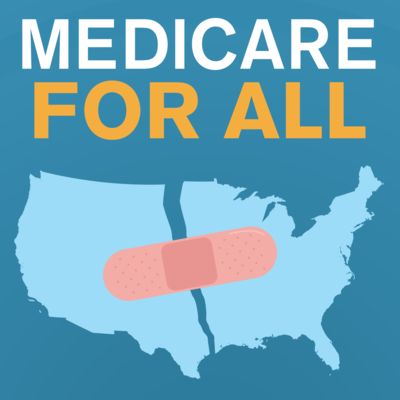episode 52: The War on Veterans' Healthcare
We’re witnessing the largest war in Europe since World War II, as Russia invades Ukraine. At the moment, U.S. troops are not directly involved in the conflict, but it has got us thinking about the healthcare that military personnel receive, particularly after they’re discharged and rejoin civilian life. There is no one better to talk with about veterans’ healthcare than our guest Suzanne Gordon.
Suzanne Gordon is an award-winning journalist and author. She has written for The New York Times, The Los Angeles Times, The Washington Post, and many other publications. She is also the author or co-author of 22 books including, most recently, Wounds of War: How the VA Delivers Health, Healing, and Hope to the Nation’s Veterans. She also wrote The Battle for Veterans’ Healthcare: Dispatches from the Frontlines of Policy Making and Patient Care.
Show Notes
Most of us who aren't veterans don't know much about the Veterans Administration. Why should Medicare for All supporters learn more about the VA?
The Veterans Health Administration (one of three branches of the Department of Veterans Affairs) is the largest healthcare system in the country, and the only publicly funded, fully integrated and coordinated healthcare system in the country.
While Medicare for All is a payment method only, the VA is both a payer and a provider, which allows them to create innovative new models of care. Suzanne reminds us that the VA essentially invented geriatric care, put PTSD (Post-Traumatic Stress Disorder) on the map in response to the Vietnam War, and developed models of palliative care.
The VA is also a major hub for healthcare professional teaching system. It's also the biggest research hub after the National Institutes of Health. Finally, the VA serves as backup to the civilian healthcare system in times of emergency.
Accessing care from the VA is not automatic for veterans. They have to meet certain thresholds, which essentially results in the VA caring for the sickest and poorest veterans. Then - despite the fact that this is an expensive population to treat - the VA provides those patients with better quality care at a lower cost than average Americans with private insurance receive.
The VA is both a publicly-funded and publicly delivered healthcare system, much like the way healthcare is provided through the NHS in the UK. This is what the right likes to call "Socialized Medicine."
The VA model allows more coordinated care and innovation that are nearly impossible in the fragmented, profit-driven private healthcare system. You might even say it's a model for a healthcare for all system nationally.
Behind the Covert Campaign to Privatize the VA
Like any well-functioning, efficient public program, profit-driven forces are trying to privatize the VA. Much like efforts to privatize Medicare and public schools, these folks are using the same playbook to privatize and profit off of the VA. They claim the public system doesn't work, they blame public employees, and assert that the private sector is the only way to provide the service well. They advocate for legislation that moves more people into private sector services, starving the public services of resources.
VA privatization efforts originated with funding from the Koch Brothers. They're joined by the pharmaceutical industry who doesn't want to have to negotiate drug prices with the VA. (Medicare is legally prohibited from negotiating drug prices, and Pharma has fought every effort to change that, because it essentially allows them to set prices as high as they like.)
